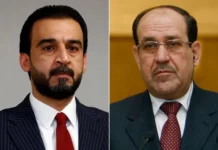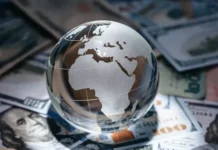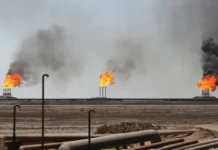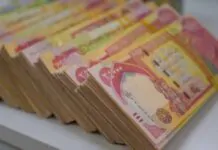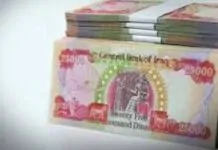Tishwash: MP: Baghdad Summit Will Attract $30 Billion in Investments to Iraq
MP Mudhar Al-Karwi confirmed on Friday (May 16, 2025) that the Arab Summit will contribute to opening up broad investment horizons in Iraq in no less than 12 important economic sectors, and may attract investments worth up to $30 billion over the next few years.
Al-Karwi told Baghdad Today, “Despite being held under exceptional circumstances in the Arab region, including the repercussions of the situation in Palestine and other Arab countries, in addition to the security and economic challenges, the Arab Summit will provide significant economic momentum to Iraq.”
He added, “Baghdad has succeeded in eliminating security concerns, and with the current positive developments, the summit will contribute to stimulating economic exchange between Iraq and Arab countries.”
He pointed out that “after the Baghdad summit, there will be positive repercussions on 10 to 12 economic sectors between Baghdad and Arab capitals, with the potential to attract investments of up to $30 billion within a few years.”
Al-Karwi explained that “there is interest from Arab countries, especially Gulf countries, in investing in the agriculture, industry, and banking sectors, with the potential to create private partnerships, as Iraq’s development path has become a major focus of interest in many Arab capitals.”
He stressed that “Iraq, through the economic committees, is moving toward concluding several agreements during the summit or through subcommittees, which will enhance the impact of the summit, which will not be limited to the political dimension alone, but will clearly extend to include the economic dimension.” link
************
Tishwash: Iraq is reasserting its regional role with an economic and development agenda.
Iraq is preparing to host the 34th Arab League Summit, amidst great momentum and widespread aspirations to restore its historic role on the regional stage. Baghdad, which for decades served as a focal point for Arab decision-making before being sidelined by wars and conflicts, is returning today with a new outlook based on stability and development and economic ambitions.
The summit, scheduled for tomorrow, Saturday, is the first hosted by Baghdad since 2012. It represents a true test of Iraq’s ability to lead Arab dialogue, not only politically, but also economically and developmentally, at a time when the region is facing unprecedented challenges, most notably the water crisis, desertification, energy crises, and economic integration.
Dr. Mazhar Mohammed Salih, the Prime Minister’s financial advisor, believes the summit represents a “strategic turning point” in Iraq’s contemporary history, demonstrating that the country now possesses the political, security, and logistical capacity to bring together Arab leaders on its soil. In a statement to Al-Sabah, he said that the summit has two main dimensions: the first is political and symbolic, representing Iraq’s return to its natural position within the Arab regional system, and the second is economic, represented by the government’s efforts to strengthen regional development partnerships, thus enhancing Iraq’s geographical position as a major logistics hub between Asia and Europe.
Saleh points out that the “Development Road” will feature prominently on the summit’s agenda, as a strategic project that could achieve integration between the countries of the Levant and the Maghreb by linking the Iraqi ports in Basra to the Turkish border, reaching Europe. He explains that the project is not limited to transportation, but includes the establishment of industrial and commercial zones along the route, providing major investment opportunities.
Economist Dhurgham Mohammed Ali believes the summit represents an important platform for revitalizing Arab initiatives on vital economic issues, stressing that the positive political climate surrounding the summit gives it additional momentum. Speaking to Al-Sabah, he added that among the most prominent issues on the table are desertification and food security, as Iraq and neighboring countries suffer from worsening environmental threats that can be addressed through joint Arab coordination in the areas of water, smart agriculture, and land reclamation.
Ali continues that the summit also offers Iraq the opportunity to renegotiate electricity and gas interconnection projects with the Gulf states, Jordan, and Egypt. These issues are witnessing rapid developments in bilateral agreements, but collective coordination within the framework of the Arab League could give them a deeper dimension.
He stressed the need to leverage the presence of Arab leaders to promote investment opportunities within Iraq, particularly in the renewable energy, tourism, and infrastructure sectors, noting that the Iraqi government has demonstrated a clear willingness to provide genuine facilitations to Arab investors.
Economist Diaa Al-Mohsen believes the summit carries a political dimension no less important than its economic aspect, especially as it is being held in a turbulent regional context witnessing a struggle for roles and influence between regional and international powers. Al-Mohsen told Al-Sabah: “The mere fact that the summit is being held in Baghdad is a political and diplomatic victory for Iraq, and a message that the country has regained its health and is capable of serving as an arena for dialogue, not a battleground.”
Al-Mohsen asserts that the government has made significant efforts to improve the capital’s infrastructure and create security and logistical conditions for the summit’s success, which will positively impact Iraq’s image regionally and internationally. He also noted that the political and diplomatic momentum accompanying the summit could help attract Arab capital, especially given the desire among Gulf investment funds to engage in strategic projects within Iraq.
Legal and economic expert Abdul Rahman Al-Shaikhli believes the summit also represents an opportunity to rebuild trust between Iraq and its Arab neighbors after decades of estrangement and tension. Speaking to Al-Sabah, he explained that Iraq has suffered from political isolation for years, resulting from internal conflicts and foreign interventions, but the summit represents an indication of a gradual shift toward a stable political environment that will enable regional reintegration.
Al-Shaikhli adds that Iraq has already begun implementing broad economic reforms in line with the requirements of a free economy, which qualifies it to be part of Arab economic integration projects. He points out that the summit could serve as a platform for developing unified Arab financing mechanisms that support small and medium-sized enterprises and achieve development goals. He concludes by saying that if Iraq succeeds in formulating a unified Arab position on environmental and economic issues during the summit, it will have achieved a strategic gain that transcends the confines of politics, establishing itself as a regional player capable of initiative and influence. link
Tishwash: Al-Sudani’s advisor reveals Iraq’s debts and their global classification.
The financial advisor to the Iraqi Prime Minister, Mazhar Mohammed Salih, revealed on Friday that the ratio of external and domestic public debt does not exceed 33% of the gross domestic product, an indicator that places Iraq within a comfortable and low-risk global credit rating.
“Iraq legally and customarily extinguished, in the Paris Club agreement of 2004, about $100 billion of the external debt accumulated by the former regime due to conflicts and wars. It was called pre-1990 debt and had a claims ceiling of about $38.9 billion.
The remainder was rescheduled for about 20 years after the immediate cancellation of $100 billion, noting that many countries had cancelled 100% or close to that at the time of signing the agreement, which reduced the remaining reschedulable debt,” Saleh said in a press statement followed by Al-Mada.
He added, “It is also assumed that the Paris Club debts (both sovereign and foreign sector) will be fully extinguished in 2028, with the final foreign private sector debt remaining after the latter’s rescheduling into European bonds called ‘Iraq 2028’. The debt is valued at approximately $2.7 billion and is currently traded in global secondary capital markets.”
He continued, “We also borrowed approximately $12 billion to finance the budget during the war on ISIS, most of which was repaid, specifically with the International Monetary Fund.”
Regarding foreign debt, Saleh points out that “the foreign debts due over the next four years are approximately $9 billion, and there are foreign debts of a similar amount extending over longer years, related to long-term loans from international funds, mostly for the reconstruction of liberated areas.”
Accordingly, “the ratio of external debt to GDP is within a very safe range, not exceeding 8% of GDP, which has placed Iraq within a comfortable and low-risk global credit rating,” according to Saleh.
The government advisor explained that “the general budget annually allocates appropriate allocations for debt repayment and servicing as a top priority, which has strengthened Iraq’s creditworthiness.”
As for the domestic public debt, according to Saleh, it “amounts to 85 trillion dinars, half of which is invested in the Central Bank of Iraq’s investment portfolio, and the remainder is held mostly by government banks and the public in the form of bonds and transfers. It has accumulated due to the three oil asset cycles.”
He reveals that “domestic public debt constitutes 25% of GDP. If the value of the remaining external public debt is added to the domestic public debt, their combined ratio to GDP does not exceed 33%, indicating that our country is within the safe classification criteria for acceptable debt, which amounts to 60% of GDP.”
He notes, “But without forgetting that there are approximately $40 billion that have not been settled practically since the Paris Club agreement in 2004, which (should be written off by 80% or more) under the agreement, if that debt is true, and which belong to eight countries related to financing the Iran-Iraq war. These are odious debts, as they are called in economic literature, and they are pending without settlement.”
The government advisor concluded his remarks by saying, “There is careful planning between fiscal and monetary policies to extinguish the domestic debt held by the (government banking system) within a genuine financial settlement that provides public finances with ample scope for financial sustainability link


